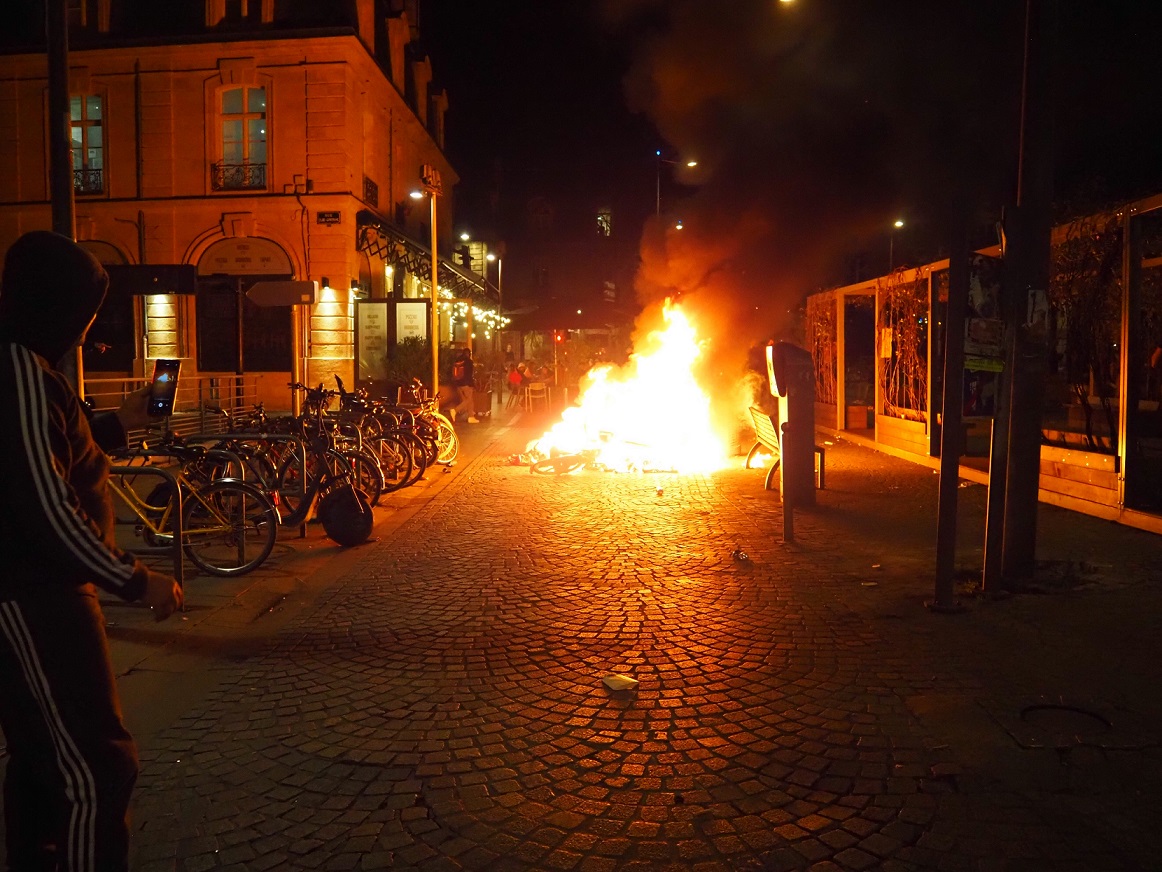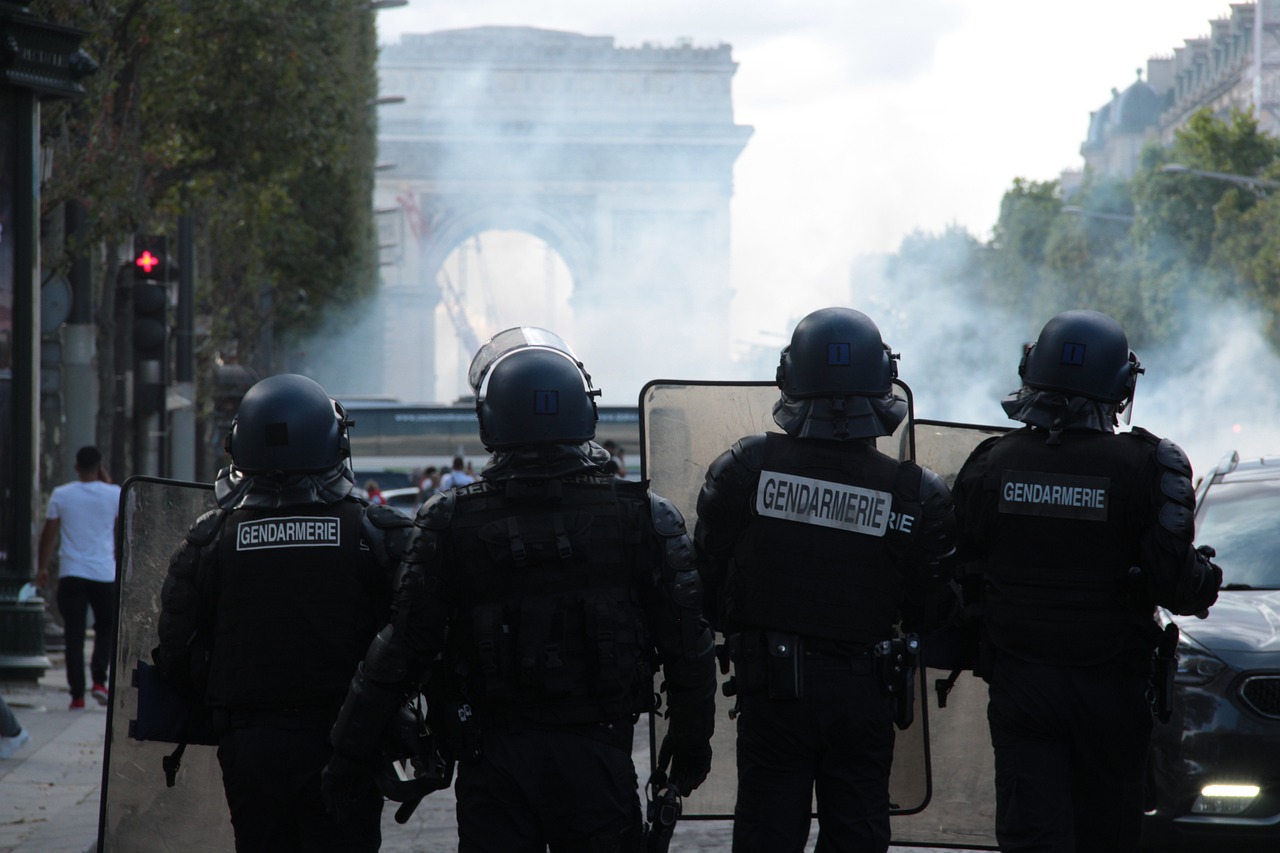Fascistisation of political life and the populist media debate are spreading throughout the whole of Europe like a new pandemic. They will continue to grow until they affect the majority of the continent, or the international community as a whole, and enter a phase of exhaustion and weakness.

Miguel Ángel Ferrís
(Paris correspondent)
After the recent massive contagions in Italy, Greece and Spain, now the explosive context aggravated for decades in France is jeopardising the Fifth Republic itself and, if an appropriate remedy is not found, will also jeopardise the European Union.
After the assassination of Nahel M by the French police and the predictable and immediate response from the majority Maghreb and sub-Saharan African immigrant population of the Paris suburbs, the French interior ministry tried to concoct an excuse that justified what was one more of the latest 16 legal murders that have taken place during police checks or subsequent pursuits. These “human errors” have quadrupled since in 2017 a law was passed extending and making less transparent the circumstances in which national security bodies can use firearms.
The images recorded by a chance witness, initially fearful of new laws protecting police officers’ identities to increase legal impunity, caused a 180-degree U-turn in the Macron government’s strategy. First it went for media justification, then for criminalisation of the victim and his companion whose whereabouts is unknown, and afterwards a discreet repression of public protest demonstrations all over the country.
 The deep malaise that exists in the villes and popular quarters, whose inhabitants suffer the gentrification and poor quality of their housing, employment discrimination and higher levels of unemployment, apparently arbitrary police checks on the street as well as the contempt of President Macron and a good part of the French conservative political sphere and its defamatory media, has led to the right conditions for it to be considered the biggest revolt of the peripheral districts since 2005.
The deep malaise that exists in the villes and popular quarters, whose inhabitants suffer the gentrification and poor quality of their housing, employment discrimination and higher levels of unemployment, apparently arbitrary police checks on the street as well as the contempt of President Macron and a good part of the French conservative political sphere and its defamatory media, has led to the right conditions for it to be considered the biggest revolt of the peripheral districts since 2005.
After the successive outbreaks of the Yellow Vests, with thousands of people injured, arrested and incarcerated, and the recent protests against pension reform, which took place in more than 300 localities over three months with very severe government repression, the flames were only fanned further by the racial dimension of the police violence.
Now the mayor of Nanterre, the associative network, the parties of the left and France Insoumise (FI) are all demanding a fair criminal process with an independent court, the immediate repeal of the 2017 anti-terrorism law, the recall of the National Assembly to thoroughly debate the events and the causes of the anger in society, and that real solutions to the underlying themes are adopted.
 For its part, the French right – which repeats Zemmour’s far-right arguments about the ‘Great Replacement’ (also called ‘white genocide’) – is, with the complicity of the main police unions, calling for an armed and civil response to stop the protests.
For its part, the French right – which repeats Zemmour’s far-right arguments about the ‘Great Replacement’ (also called ‘white genocide’) – is, with the complicity of the main police unions, calling for an armed and civil response to stop the protests.
However, the government’s response, after the storm of revolts mostly by young immigrants or young people from immigrant families, is to call for calm through well-known media personalities but at the same time to activate “repression mode”. This includes means of militarised intervention that are only used after managing to construct a narrative of an “enemy within”, as was the case with the jihadist attacks and, going back in time, the pro-Algerian independence protests drowned in blood and fire in the 1950s and early 1960s.
In the complicated puzzle that is French political reality the economic elites who run the country, in anticipation of greater exhaustion of their first option, that of the discredited and unpopular President Macron, are preparing to play the card of a media and electoral rise of the far-right, similar to what they have promoted in other European countries.

A good symbol of that is the substitution of the prestigious weekly Journal du Dimanche’s editor for a journalist from the far-right, author of a biography on Zemmour himself. The strike currently being held by the entirety of the staff aims to avoid another imposition of conservative financial groups’ interests on the professionalism of a journalistic medium with a long history.
What is taking place at the moment is the “Chronicle of a Revolt Foretold” in which since 2005 hardly any progress has been made to prevent its repeat.
The increase to 240,000 police personnel, tens of thousands of supplementary euros to renew anti-riot equipment, the growth in legal and judicial means to repress protests and the persecution and stigmatisation of the country’s anti-racist and ecological organisations which are treated as real terrorist threats, leaves no hope for a resolution of the large fractures in the social cohesion and civil liberties of the country which at one time enlightened the world with the planet’s most important advances in democracy and collective rights.
(Translated by Philip Walker – Email: philipwalkertranslation@gmail.com) – Photos: Pixabay












.jpg)












